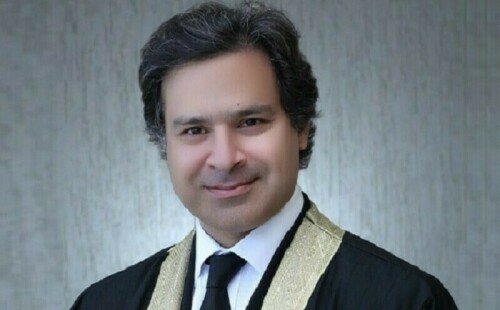KABUL, July 7: The US designation on Saturday of Afghanistan as its newest “major non-Nato ally” amounts to a political statement of support for the country’s long-term stability and solidifies close defence cooperation after American combat troops withdraw in 2014.
“We see this as a powerful commitment to Afghanistan’s future,” US Secretary of State Hillary Rodham Clinton said at a news conference during a brief stop in the Afghan capital.
“We are not even imagining abandoning Afghanistan,” she said in the grand courtyard of the presidential palace after talks with President Hamid Karzai.
From Kabul, she and Mr Karzai headed separately to Japan for an international conference on Afghan civilian assistance.
Donors planned to pledge $16 billion over four years, with the US share not immediately clear, according to a US diplomatic official ahead of the official announcement on Sunday.
The non-Nato ally declaration allows for streamlined defence cooperation, including expedited purchasing ability of American equipment and easier export control regulations. Afghanistan’s military, heavily dependent on American and foreign assistance, already enjoys many of these benefits. The non-Nato ally status guarantees it will continue to do so.
Afghanistan is the 15th such country to receive the designation. Others include Australia, Egypt, Israel and Japan. Pakistan was the last nation to gain the status, in 2004.
Ms Clinton insisted that progress was coming incrementally but consistently to Afghanistan after decades of conflict. “The security situation is more stable,” she said. Afghan forces “are improving their capacity”.
At the news conference, Mr Karzai thanked the US for its continued support.
Ms Clinton repeated the tenets of America’s “fight, talk, build” strategy for Afghanistan: defeat extremists, and win over Taliban militants and others willing to renounce violence and help in the long reconstruction of Afghanistan.
Fighting still rages as Afghan and US-led coalition forces battle insurgents, mostly in the eastern part of the country.
Although casualties have fallen among foreign forces as the United States and other nations begin a gradual withdrawal, 215 coalition soldiers were killed in the first six months of the year, compared with 271 in the same period last year.
Reconciliation efforts haven’t gained steam. Still, Ms Clinton said she was pleased to be meeting the foreign ministers of Afghanistan and Pakistan together at the conference in Tokyo. That three-way relationship is seen as critical to stabilising Afghanistan.
Ms Clinton, who flew to Kabul after attending a 100-nation meeting on Syria in Paris, stressed the importance of the pledges for civilian aid.
Afghanistan’s cash-strapped government depends heavily on foreign assistance, and any significant drop-off in that help after 2014 could set back the country’s development. —AP














































Dear visitor, the comments section is undergoing an overhaul and will return soon.